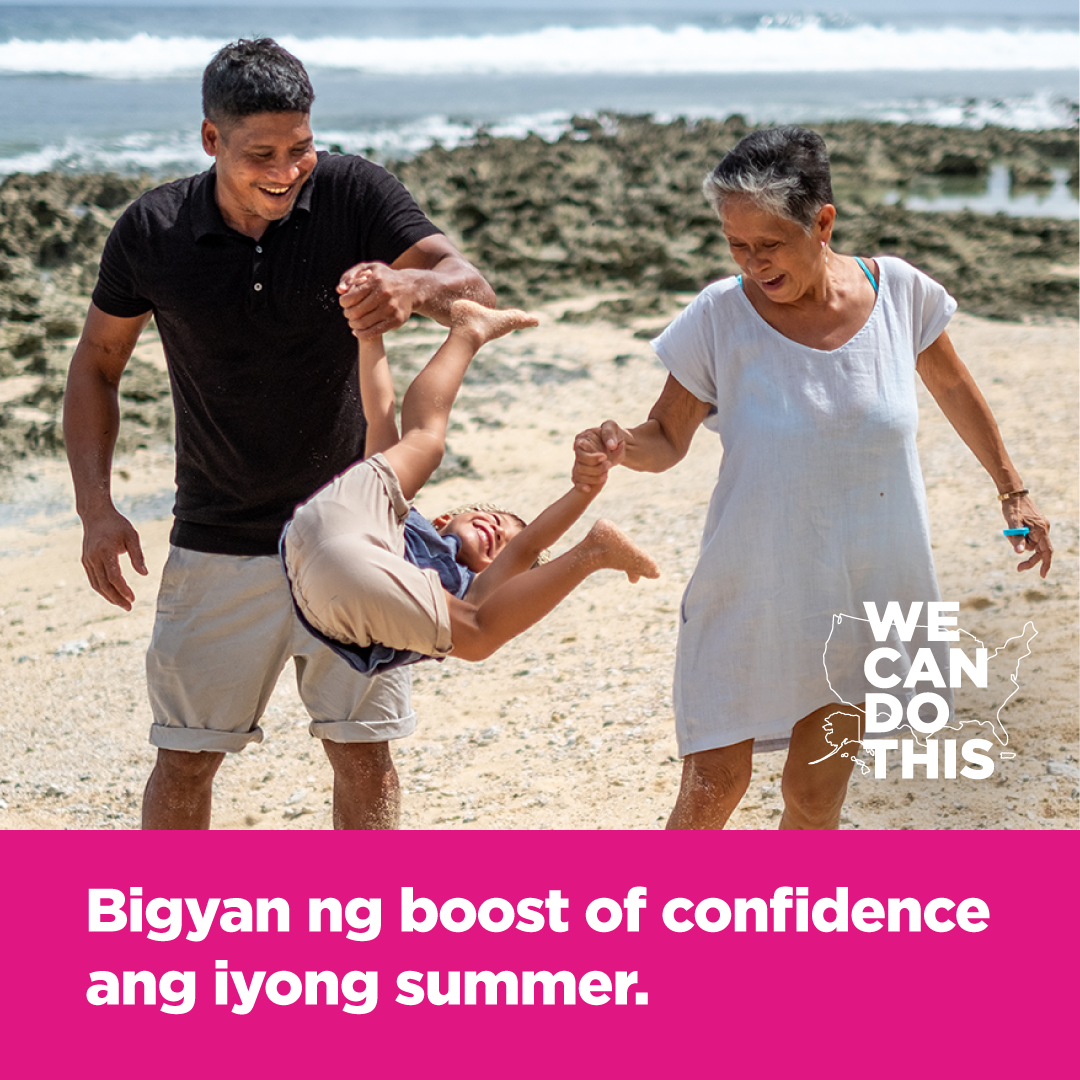By the We Can Do This COVID-19 Public Education Campaign
COVID vaccines and boosters have reduced the threat of COVID, allowing many people to gather, travel, and celebrate with more peace of mind. Vaccines and boosters provide the best protection against the worst outcomes of COVID, yet people still have many questions around boosters.
As of August 10, CDC data showed that while Asian Americans were among the highest boosted group—with nearly 70 percent of those eligible having received their first booster doses—only 14 percent of fully vaccinated Asian Americans 50 years or older have gotten their second booster. First booster rates are still low for Native Hawaiians and Pacific Islanders, with less than half of the population age 5 and older receiving their first booster doses.
To that end, the We Can Do This COVID-19 Public Education Campaign has engaged community-based organizations as partners to increase vaccine and booster uptake across the country.
A partnership between Pacific Island Ethnic Art Museum (PIEAM) and Empowering Pacific Islander Communities (EPIC) has humanized the numbers behind those lost to COVID-19 with a curated community exhibit titled, Toe Fo’i: The Return. Through the power of storytelling from 6 Pasifika artists, Toe Fo’i: The Return evokes a narrative that “reminds visitors the stories of those lost are the stories of those who survived,” says Kiki Rivera, PIEAM Guest Curator and EPIC Storyteller.
“COVID-19 devasted our Native Hawaiians and Pacific Islanders,” says Rivera, “We are as dedicated to drawing awareness to the importance of vaccines and boosters as we are to guiding our communities through the hurdles of misinformation, fear, mistrust, and entitlement that surround the topic.”
Here is what people should know about the COVID boosters:
Boosters provide the best protection against severe illness and death. Over time, vaccines may become less effective at preventing COVID, and just because you’ve had COVID doesn’t mean you can’t get it again. Getting boosted extends your protection and keeps you safer from emerging variants. A booster shot is another dose that — as the name suggests — boosts immunity to the virus as time passes. Vaccinated people who have also had a booster are less likely to get sick; but if they do catch the virus, the illness is usually less severe. For adults ages 65 or older, boosters can more than double their protection.
Vaccines and boosters protect vulnerable populations against COVID. Everyone 5 or older who has completed their initial COVID vaccination series should get a booster. Individuals who are up to date on COVID vaccines not only receive protection for themselves, but they also help reduce the spread of COVID to people who are at high risk due to age or compromised immune systems.
Second boosters provide added protection for people at higher risk. Adults aged 50 or older and immunocompromised individuals can improve their protection even more with a second booster. CDC recommends second boosters, with either the Pfizer or Moderna vaccines, for:
· People aged 50 or older who got their first booster four months or more ago,
· People who got a Johnson & Johnson vaccine and their first booster with a Johnson & Johnson dose at least four months ago,
· Residents of long-term care settings,
· People with certain underlying medical conditions that impact their immune systems, and
· Pregnant and recently pregnant people.
Boosters are readily available to all vaccinated people ages 5 years or older. Just like the vaccines, booster shots are available at no cost to anyone living in the U.S. People who got Pfizer or Moderna vaccines should get a booster five months after the initial doses. Vaccinated adults 18 or older may choose any available vaccine as a booster, regardless of the type or brand of vaccine received previously. Only the Pfizer vaccine is available as a booster for those ages 5 to 17.
For more information and to find a vaccine, visit www.vaccines.gov
































